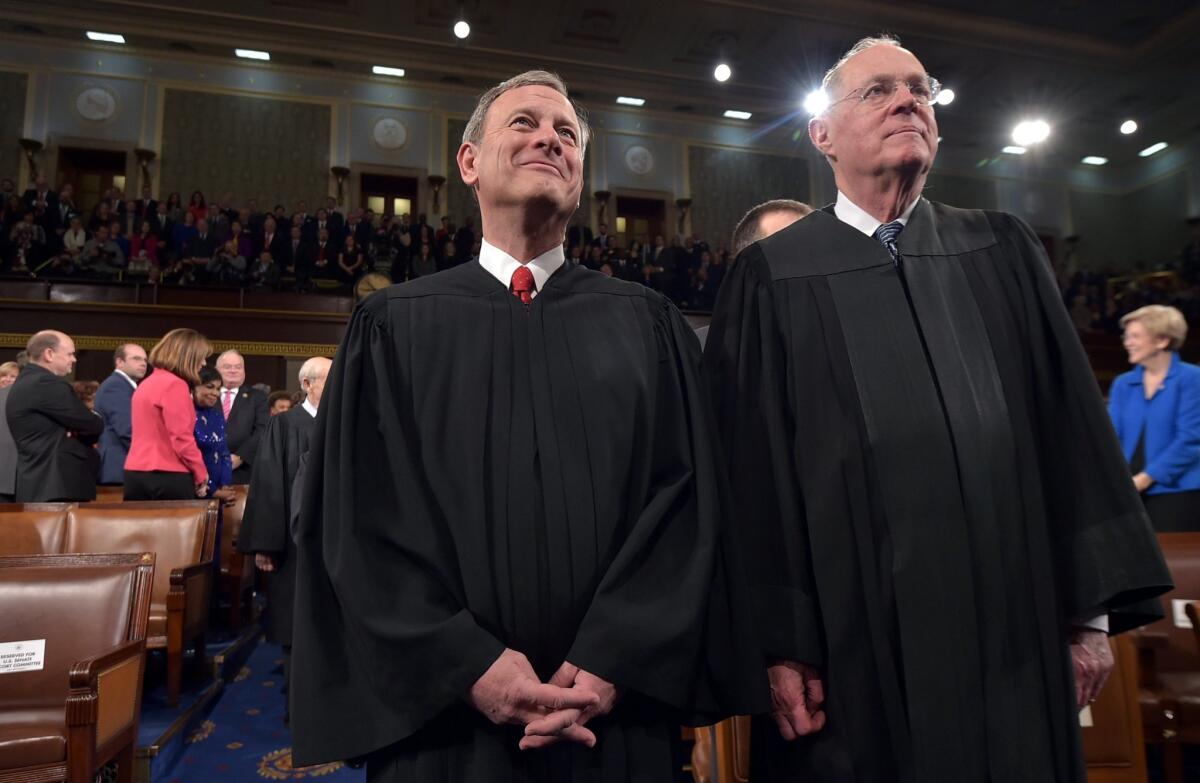Millions of 401(k) plans could get boost from Supreme Court

- Share via
Reporting from Washington — More than 50 million Americans with retirement funds through their jobs may get a boost from the Supreme Court.
A case heard by the justices Tuesday involved whether workers can sue their employers if the employer offers mutual funds that have excessively high fees.
------------
FOR THE RECORD
Feb. 24, 1:45 p.m.: An earlier version of this article had a headline that referred to IRAs. The ruling would affect 401(k) plans.
------------
Lawyers for the Obama administration said the federal law that protects retirement funds requires employers to act as “prudent” investors and to act “solely” in the interest of their employees and retirees. That means not just selecting a strong array of mutual funds but continuing to monitor those funds to find ones with lower costs, they said.
Picking an array of funds at one point in time and then ignoring what happens in later years isn’t good enough to meet the employer’s duty, the government said.
“You have to duty to look from time to time, and you need to look at performance and expenses,” said Nicole Saharsky, a Justice Department attorney, in spelling out the legal standard.
The sponsors of retirement funds should avoid higher-cost “retail” funds if cheaper “institutional” funds are available, the Justice Department argued.
A lawyer for Edison International, the parent of Southern California Edison, which was sued in the case, argued that a continuing duty to monitor funds and costs would be “enormously disruptive.”
But the justices sounded skeptical. Checking regularly on fund performance is “what a prudent investor would do” with his own money, said Justice Anthony Kennedy.
Chief Justice John Roberts said it would not be hard for employees to check the fees and switch to other similar funds with lower fees.
A lot is at stake in the case. According to a brief filed by the Investment Company Institute, 401 (k) plans held $4.4 trillion in retirement assets as of March 2014 on behalf of 52 million people.
Some of the funds offered to Edison employees had fees that were 37% higher than comparable institutional funds, David Frederick, a lawyer for the workers and retirees who brought the case told the justices.
A federal district judge and the 9th Circuit Court of Appeals had ruled that the employees and retirees could sue over high-cost funds, but only if the funds were added within the last six years.
The justices agreed to review that ruling in Tibble v. Edison International and to decide whether employers have a continuing duty to seek funds with lower costs.
For more on the Supreme Court, follow @DavidGSavage on Twitter.
More to Read
Sign up for Essential California
The most important California stories and recommendations in your inbox every morning.
You may occasionally receive promotional content from the Los Angeles Times.














